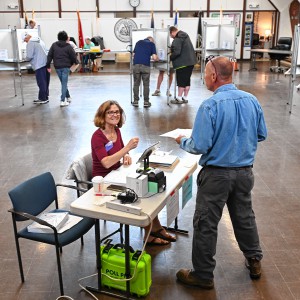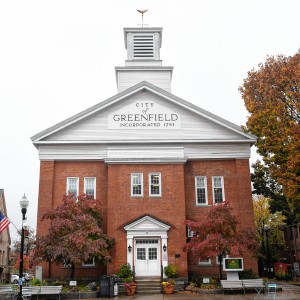My Turn: Questions about execution

mactrunk mactrunk
| Published: 02-06-2024 3:59 PM |
There are so many issues raised in Bill Newman’s column, “The illusion of kinder, gentler executions,” [Recorder, Feb. 5].
A side issue is the Supreme Court shadow docket; issuing decisions without any written opinion. It should be unconstitutional for the court to issue a ruling without a written decision signed by a majority of the justices, as they did in declining to decide whether execution by nitrogen causes suffering. That reeks of government by men (five like-minded, partisan judges), not by rule of law.
The Constitution prohibits “cruel and unusual punishment.” I will not describe the punishment used by the British on commoners at that time it was written. You can read about it in English history, but I think it was intended to prevent torture.
You think that laws and the Constitution protect you, but they don’t. Only the determination of people in authority to enforce the laws may protect us. We are living in a time when people in power rely on their own will to decide how to interpret the laws or to ignore them.
I read in a mystery novel by Dorothy Sayers, “Unnatural Death,” the murderer induced death by injecting an air bubble into a vein. An air bubble in the vein purportedly stopped the heart instantly. She mentioned that nurses injecting medicine must squirt of bit out of the needle first to make sure there are no air bubbles in the syringe. If that is so, why bother about drug companies refusing to provide drugs for execution?
Regarding executions, I have been personally present at three terminations in which there was no evidence of suffering of any kind. The subject was given a tranquilizer, then an overdose of a barbiturate injected through a vein. They passed gently into “sleep.” You realize, of course, that I am speaking of the mercy killing of my pets.
In 1998, Dr. Jack Kevorkian was convicted of second-degree murder and served eight years in prison for assisting a man with Lou Gehrig’s disease to take his life. At the time, that was called mercy killing or euthanasia. Now, it is called “assisted suicide” and is legal in many states.
Article continues after...
Yesterday's Most Read Articles
 Serious barn fire averted due to quick response in Shelburne
Serious barn fire averted due to quick response in Shelburne
 Bridge of Flowers in Shelburne Falls to open on plant sale day, May 11
Bridge of Flowers in Shelburne Falls to open on plant sale day, May 11
 Political newcomer defeats Shores Ness for Deerfield Selectboard seat
Political newcomer defeats Shores Ness for Deerfield Selectboard seat
 Roundup: Pioneer baseball wins Suburban League West title following 2-0 win over Hopkins
Roundup: Pioneer baseball wins Suburban League West title following 2-0 win over Hopkins
 As I See It: Between Israel and Palestine: Which side should we be on, and why?
As I See It: Between Israel and Palestine: Which side should we be on, and why?
 Employee pay, real estate top Erving Town Meeting warrant
Employee pay, real estate top Erving Town Meeting warrant
A major problem of our time is the number of accidental deaths due to fentanyl or heroin. Don’t tell me that no one knows how to cause death without suffering! Or that writhing for 22 minutes, strapped to a table, is not torture.
The column rightly points to the immoral, unethical use of killing as punishment for crime. The irony is that so many of the people who believe wholeheartedly in punishment of those they perceive as guilty (and innocence projects have proved beyond doubt that many were not guilty) will kill to prevent other people from providing abortions (killing the unborn), even to the extent of preventing doctors from providing lifesaving treatment to women with problem pregnancies.
I would like to leave on a high note, but I can’t think of one right now.
Judith Truesdell lives in Shelburne.

 My Turn: Stop taking all equity in home seizures now
My Turn: Stop taking all equity in home seizures now Robert McGahan: Will Emmet selflessly gives time and energy to town
Robert McGahan: Will Emmet selflessly gives time and energy to town Pam Roberts: Come join Buddy Baseball's new season on May 11!
Pam Roberts: Come join Buddy Baseball's new season on May 11! Bill and Jean Gran: Heath Select Board needs Mike Smith’s broad experience
Bill and Jean Gran: Heath Select Board needs Mike Smith’s broad experience
